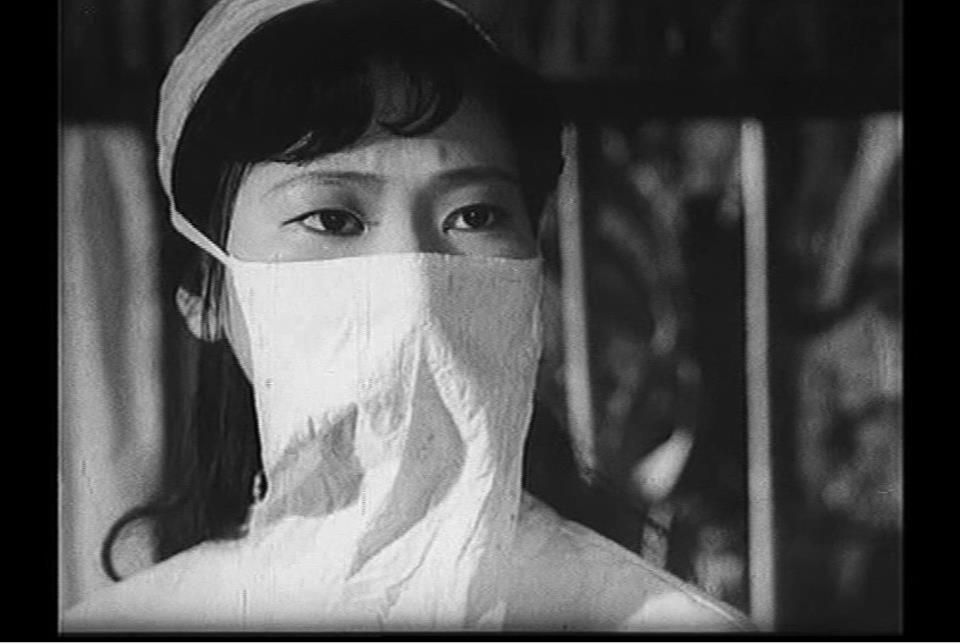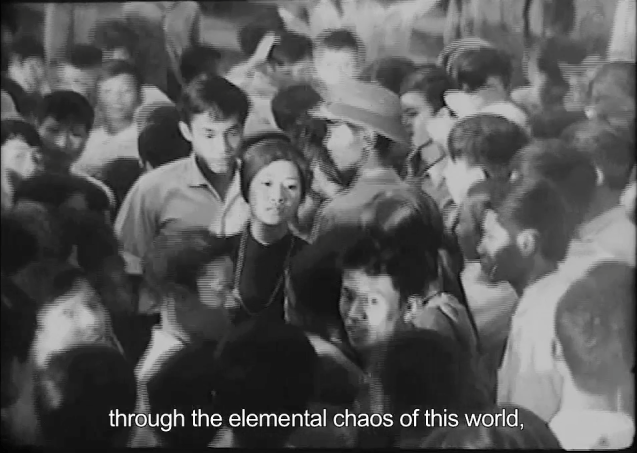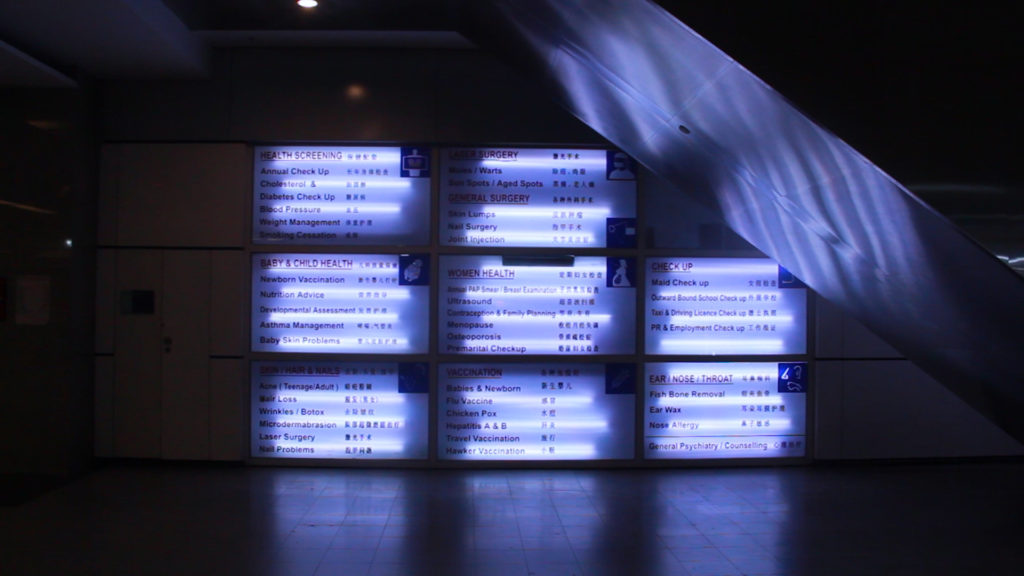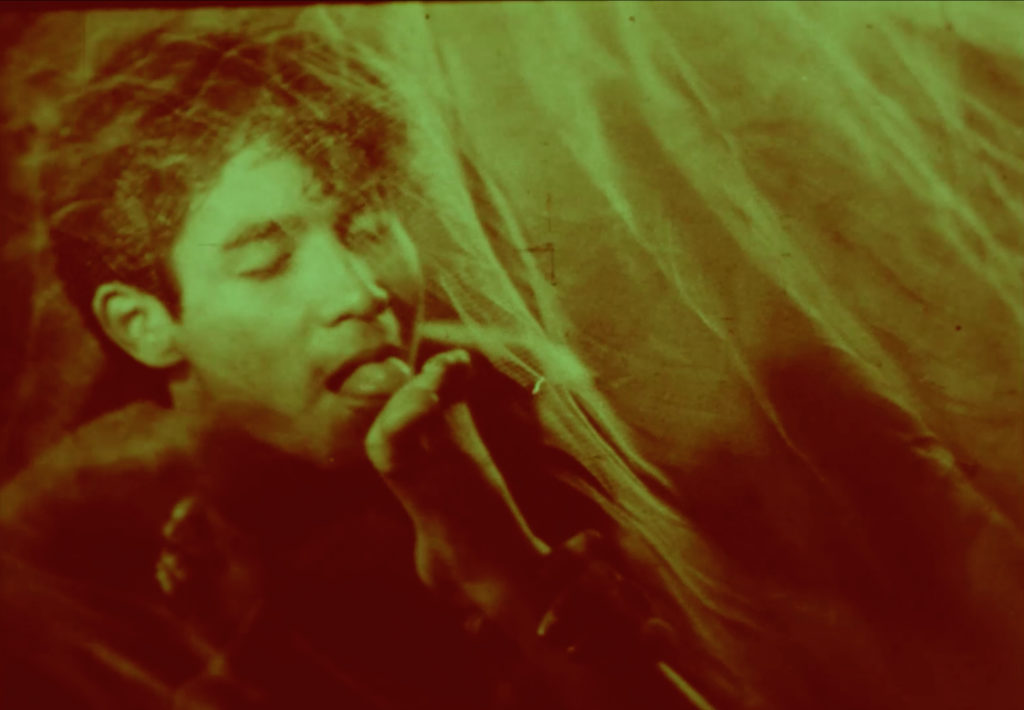Presented by Objectifs
12 to 15 July 2017
Presented by Objectifs
Admission: Screenings $5 per session, buy tickets here or at the door. Talks are free.
This year’s Asian Film Focus explores notions of archival and found footage in the context of contemporary filmmaking in Asia, highlighting works from Vietnam, India, the Philippines and Singapore. What can we glean from these glimpses into the past, and what does it say about our present and our future?
Ever since its advent, film has been used as a means to record significant moments. From personal memories to historical milestones, its particular qualities have helped create time capsules that historians, archivists, artists, and filmmakers have turned to for insight into the past and creative inspiration. As the process of recording and archiving film continues to evolve in our lives, found footage has emerged as an important storytelling device as filmmakers seek to appropriate material to shape different narratives, and capture space and time.
This theme will be explored through short films that have been selected by curators from the focus countries. The curators are:
- Shireen Seno, visual artist and filmmaker (Philippines)
- Supriya Suri, Artistic Director of Cinedarbaar (India)
- Truong Que Chi, curator of Nhà Sàn Collective (Vietnam)
- Leong Puiyee, film manager at Objectifs (Singapore)
Click here for the line up. For more about the film programmers, click here.
Dialogue Sessions
Join us as we discuss this year’s AFF theme with filmmakers, film curators, and writers.
Click here for more information.
TIME MACHINE: SHORT FILMS
Film Screening / 12 July, Wednesday, 730pm / 67 min / M18: Some Sexual Scenes
Tickets here: http://aff12jul.peatix.com
There will be a post screening Q&A session.
Film Screening / 13 July Thursday, 830pm / 33 min / NC16: Some Violence
Tickets here: http://aff13jul.peatix.com
There will be a post screening Q&A session
Film Screening / 14 July, Friday, 730pm / 41 min / M18: Sexual scene and nudity
Tickets here: http://aff14jul.peatix.com
There will be a post screening Q&A session.
Film Screening / 15 July Saturday, 830pm / 48 min / PG13
Tickets here: http://aff15jul.peatix.com
There will be a post screening Q&A session
DIALOGUE SESSIONS
Join us as we discuss this year’s AFF theme with filmmakers and film curators. Admission is free.
Film is an important medium that allows us to record personal stories and experiences. When we hit re-play, we re-experience past times, and past memories. Together, such films preserve and form our collective history. In this dialogue with the programmers and filmmakers of the AFF, understand how filmmakers and artists use film to reconstruct their recollection, and how film can be a time machine that captures the past and the present.
Panellists: Shireen Seno, Nguyen Trinh Thi, Liao Jiekai, Amshu Chukki
Moderated by: Thong Kay Wee (Outreach Officer, Asian Film Archive)
Thong Kay Wee currently works as the Outreach Officer at the Asian Film Archive (AFA). Part publicist and part programmer, he is responsible for devising strategies and programmes to propagate Asian cinema which is the AFA’s mission. His key contributions to the AFA include curating the exhibition series Celluloid Void: The Lost Films of Southeast Asia (2015, 2016) and creative producing for the film history-cum-art exhibition series State of Motion (2016, 2017), as part of National Arts Council’s Singapore Art Week. Thong graduated with a BA (Hon) in Communication Studies from Nanyang Technological University, Singapore, specialising in Cinema Studies.
Moderated by Leong Puiyee, film manager at Objectifs
Short films are known to be a launch pad for new filmmakers. The short film format not only allows filmmakers to hone their craft but to also experiment with the form without necessarily following a particular structure. The format is currently thriving – more people are creating short films, and there are more platforms for these works to reach wider audiences. From film festivals to the Internet, how have short films and their role evolved over the years? How important are they in the current film landscape?
ABOUT THE FILM PROGRAMMERS
Shireen Seno, visual artist and filmmaker (Philippines)
Shireen Seno is a lens-based artist whose work addresses memory, history, and image-making. She received an Honours B.A. from the University of Toronto with a double major in Architectural Studies and Cinema Studies. As a visual artist, her work has been exhibited at Republikha Gallery, Manila Contemporary, mag:net gallery, Green Papaya Art Projects, the Ishmael Bernal Gallery at the University of the Philippines Film Center, and the Centre for Contemporary Art Singapore. Her films have been screened internationally at the International Film Festival Rotterdam, Centre Pompidou (Paris), Jeonju (Korea), and the German Historical Museum (Berlin), amongst others.
She is an alumna of the Berlinale Talents (2014) and Oberhausen Seminar (2015) and was 1 of 4 finalists in Film for the Rolex Mentor and Protégé Arts Initiative (2016-2017).
Supriya Suri, Artistic Director of Cinedarbaar (India)
Supriya Suri is a film maker, cinephile and curator and currently the President and the Artistic Director of Cinedarbaar. She was awarded the prestigious French Art Scholarship to study Cinema in Paris, where she was also awarded the Cite Universities Film Grant. She returned to India to form Cinedarbaar, a non-profit dedicated primarily to using cinema as a tool to advance the dialogue in film curating, criticism, and skill development for the youth. As a result she has programmed several film festivals, conducted film discussions in collaboration with government organisations of India and embassies, cultural centres in India.
Truong Que Chi, curator of Nhà Sàn Collective (Vietnam)
Truong Que Chi is currently a curator of Nhà Sàn Collective, an artist-run and non-profit contemporary art space in Vietnam. She is also a film lecturer at the Hanoi University of Theatre and Cinema. Her works have been featured at various local and international film festivals, exhibitions, and symposiums including among others the Oberhausen International Film Festival, Les Rencontres Internationales Paris/Berlin – New Cinema and Contemporary Art, South by Southeast. A Further Surface at Times Museum, Hanoi Mini Docfest. Truong Que Chi graduated with a Master’s degree in Film Studies from University of Paris III: Sorbonne Nouvelle.
Leong Puiyee, film manager at Objectifs (Singapore)
Puiyee is responsible for the film programme and projects at Objectifs, where she curates and manages programmes such as Women in Film and the Asian Film Focus. She is also the Programme Manager (Short Films) for the Singapore International Film Festival. An occasional zine artist, Puiyee has taken part in the 2013 Tokyo Art Book Fair and Print Lab: Art and Design publication exhibition under Grey Projects. Puiyee graduated with a diploma in Arts Management from Lasalle College of the Arts.
About the Asian Film Focus
The Asian Film Focus promotes the creation and appreciation of independent films from the region. It is dedicated to the short film genre, cinema’s most democratic and expressive form. Each year, we work with the foremost film programmers in Asia to bring audiences exciting gems from different countries, with a different theme each time. Through screenings, panel discussions, and networking sessions, industry and audience members can come together to discuss trends and developments in film, and forge a community that celebrates the creative power of filmmaking.
The Asian Film Focus programme is made possible with the support of the Singapore Film Commission.




